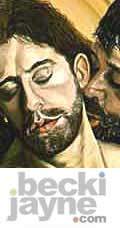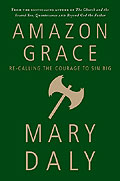In my previous post, I cited Sara Robinson whose insightful summation of John Dean's latest book is a must-read at Orcinus. To complement Sara's work, I thought I'd post excerpts from a Keith Olberman interview of the former Nixon White House Counsel about Conservatives Without Conscience.
Dean says that 23% of the population are pure right-wing authoritarian followers. He elaborated:
It‘s a remarkable analysis of the authoritarian personality, both those who are inclined to follow leaders, and those who jump in front and want to be the leaders.
It was not the opinion of social scientists, it was information they drew by questioning large numbers of people, hundreds of thousands of people, in anonymous testing, where they conceded, you know, their innermost feelings and reactions to things. And it turned out that these people were—most of these that came out of the testing were people who had been prequalified to be conservatives, and then they found that this, indeed, fit with the authoritarian personality.
OLBERMANN: Does it really—do the studies indicate that it really has anything to do with the political point of view? Is it—would it be easier to essentially superimpose authoritarianism over the right than it would the left? Or is it theoretically possible that they could they have gone in either direction, and it‘s just a question of people who like to follow other people?
DEAN: They found—they have found really—maybe a small, 1 percent of the left, who follow authoritarianism, probably the far left. But as far as widespread testing, it is just overwhelmingly our conservative orientation.
OLBERMANN: There is an extraordinary amount of academic work that you quote in the book. A lot of it is very unsettling. It deals with psychological principles that are frightening and that may have faced other nations at other times, in Germany and Italy in the ‘30s coming to mind in particular.
But what—how does it apply now? And to what degree should it scare us? And to what degree is it something that, that, that, that, that might still be forestalled?
DEAN: Well, to me, it was something of an epiphany to run into this information. First, I‘d never read about it before. I sort of worked my way into it until I found it. It‘s not generally known out there what‘s going on. And I think, from best we can tell, these people, the followers, a few of them, will change their ways when they realize what they‘re doing, not even aware of their behavior.
The leaders, those who were inclined to dominate, are not going to change a second. They‘re going to be what they are.
So by and large, the reason I write about this is, I think we need to understand it, we realize, when you take a certain step and vote a certain way and head in a certain direction, where this can end up. So it‘s sort of a cautionary note. It‘s a warning as to where this can go, because other countries have gone there.
OLBERMANN: And the idea of leaders and followers going down this path, and perhaps taking a country with them, requires—this whole edifice requires an enemy, communism, al Qaeda, Democrats, me, whoever, for the two minutes hate. I mean, there is—we overuse—I overuse the Orwellian analogies to nauseating proportions. But it really was, in reading what, what, what, what you wrote about, and especially what the academics talked about, there was that, that two minutes hate thing. There has to be an opponent, an enemy, to coalesce around, or the whole thing falls apart. Is that the gist of it?
DEAN: It is one of the things that, believe it or not, still holds conservatism together, because there are many factions and conservatisms, and their dislike or hatred of those they portray as liberal, who will be anybody who basically disagrees with them, is one of the cohesive factors. There are a few others, but that‘s certainly one of the basics.
There‘s no question that the—particularly the followers. they‘re terribly, they‘re very aggressive in their effort to pursue and help their authority figure out, or their authority beliefs out. They will do whatever needs to be done, in many regards. They will blindly follow. They stay loyal too long. And this is the frightening part of it.Dean and Olberman discussed the Republican politicization of terrorism to retain control of the presidency through "ever-increasing threats of terrorism" and fear-mongering, an extremely poignant subject with the midterm elections less than 90 days away and given the exploitation of the recent British terrorist arrests:
DEAN: What I‘m saying is that there has been fear-mongering, the likes of which we have not seen in a long time in this country. It happened early in the cold war. We got accustomed to it, we learned to live with it, we learned to understand what it was about and get in proportion. We haven‘t done that yet with terrorism.
And this administration is really capitalizing on it and using it for its political advantage. No question, the academic testing shows, the empirical evidence shows, that when people are frightened, they tend to go to these authority figures, they tend to become more conservative. So it‘s paid off for [Bush-Cheney] politically to do this.
[..]
I focused in the book not on the Bush administration, and Cheney and the president, but I—because they really—I‘ve been there, done that. But I wanted to understand is the—what they have done is, they have made it legitimate to have authoritarianism. It was already operating on Capitol Hill. After the ‘94 control by the Republicans of the Congress, it recreated the mood, it restructured the Congress itself in a very authoritarian style, in the House in particular.
Now, the Senate hasn‘t gone there yet, but it‘s going there, because more House members are moving over.
This atmosphere is what Bush and Cheney walked into. They are authoritarian personalities, Cheney much more so than Bush, and they have made it legitimate, and they have taken it way past where anybody‘s ever taken it in the United States.
[...]
The lead researcher in this field told me, he said, I look at the numbers in the United States, and I see about 23 percent of the population who are pure right-wing authoritarian followers. They‘re not going to change. They‘re going to march over the cliff. The best thing to deal with them—and they‘re growing. And they have tremendous influence on Republican politics. The best thing, the best defense is understanding them, to realize what they‘re doing, how they‘re doing it, and how they operate. Then it can be kept in perspective, then they can be seen for what they are.
OLBERMANN: You‘ve been a historian, you‘ve been a part of history, you‘ve been to the (INAUDIBLE) -- one of the central moments of history in the 20th century. What kind of danger—are we facing a legitimate threat to the concept of democracy in this country?
DEAN: I don‘t think we are in a fascist road right now. We are so close to it, though, Keith, that‘s why I wrote the book, because I want people to understand exactly what is going on, and why it‘s going on.Thank you, John Dean.
In FDR's famous inaugural speech, he stated that "the only thing we have to fear is fear itself." When conservatives cannot control their own fear--imagined or real--the reflexive drive to control others becomes great, their need to feel strong and safe almost pathological. Let's hope we can assuage that fear. And soon before the fear-mongering escalates into World War III.























|